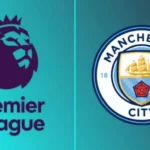Revealed: How a Man City legal victory against the Premier League would cost top-flight rivals £5m each as clubs await verdict on FFP case

As Manchester City’s protracted legal confrontation with the Premier League approaches its critical phases, the financial implications for all parties involved have grown increasingly severe. What began in February 2023 as a regulatory proceeding has evolved into one of the most expensive and consequential legal conflicts in the history of professional sports, with ramifications that extend far beyond Manchester City’s immediate future.
Industry experts and legal analysts now project that the combined legal expenditures for both Manchester City and the Premier League could surpass £100 million by the time a verdict is reached. More significantly for the nineteen other Premier League clubs, a ruling in Manchester City’s favor would likely trigger a cost-recovery mechanism that would distribute these enormous legal expenses across the remaining teams in the competition—potentially costing each club approximately £5 million.
The Financial Burden: How Costs Would Be Distributed
The Premier League’s internal regulations contain specific provisions regarding the financing of legal proceedings initiated by the league against member clubs. These provisions stipulate that the costs incurred by the league in such actions are to be deducted from the annual proceeds generated through broadcast rights and commercial partnerships before distribution to member clubs.
“This creates a situation where the other nineteen clubs effectively underwrite the Premier League’s legal campaign,” explains football finance expert Dr. James Grayson of the University of Manchester. “Should Manchester City prevail and secure a full recovery of costs, those expenses wouldn’t simply disappear—they would be absorbed by the league’s central fund, which directly impacts the financial distribution to every other club.”
The initial projections for the legal expenses were considerably more modest, with most financial analysts anticipating approximately £8 million in total costs. However, as the case has expanded in scope and complexity, with both sides engaging elite legal representation and forensic accounting teams, the expenses have multiplied dramatically.
The 130 Allegations: Understanding the Scope of the Case
The Premier League’s case against Manchester City encompasses 130 distinct charges of financial misconduct, covering a period from 2009 to 2023. These allegations represent the most comprehensive disciplinary action ever taken against a Premier League club and fall into several broad categories:
Financial Reporting Irregularities
The most substantive allegations center on claims that Manchester City systematically misrepresented their financial position by:
- Concealing the true sources of sponsorship revenue
- Artificially inflating the value of commercial partnerships
- Failing to accurately report certain categories of income and expenditure
Managerial Compensation Schemes
A significant portion of the allegations relates to the financial arrangements surrounding former manager Roberto Mancini, who guided the club to their first Premier League title in 2012. The Premier League contends that substantial portions of Mancini’s compensation were paid through separate contractual arrangements not disclosed to regulatory authorities.
Player Remuneration Discrepancies
The charges also include allegations that Manchester City failed to provide complete and accurate information regarding player wages and incentive structures, potentially circumventing financial constraints designed to maintain competitive balance.
Non-Cooperation with Investigations
Perhaps most damaging from a procedural perspective, the Premier League has twice charged Manchester City with failing to cooperate with its investigations, which constitutes a separate category of regulatory breach under the league’s rules.
Potential Sanctions: What’s at Stake for Manchester City
The range of potential sanctions facing Manchester City is unprecedented in scope, reflecting the gravity of the alleged infractions. While financial penalties would normally be the standard response to regulatory breaches, the extraordinary nature of the case has introduced more severe possibilities:
Expulsion from the Premier League
The most extreme sanction available would be Manchester City’s expulsion from the Premier League, which would represent the most significant disciplinary action in the history of English football’s top division. This outcome, while considered unlikely by many legal observers, remains technically within the scope of possible penalties.
Points Deductions
A substantial points deduction, either applied retroactively or to future competitions, represents a more plausible severe sanction. Such a penalty could potentially invalidate one or more of Manchester City’s recent championship titles or compromise their competitive position in upcoming seasons.
Transfer Restrictions
Limitations on Manchester City’s capacity to acquire players could significantly impact the club’s ability to maintain its competitive advantage, particularly given its model of continuous squad reinforcement through strategic acquisitions.
Financial Penalties
Substantial financial penalties would be the most conventional response, though given Manchester City’s immense resources, monetary sanctions alone might be viewed as insufficient to address systematic regulatory breaches.
The Legal Teams: Elite Representation on Both Sides
The high stakes involved have prompted both parties to assemble formidable legal teams comprised of the UK’s most distinguished barristers and solicitors specializing in sports law, competition law, and financial regulations.
Manchester City has retained Lord Pannick KC, widely regarded as one of Britain’s preeminent constitutional lawyers, whose daily rate is reported to exceed £10,000. The Premier League has countered with Adam Lewis KC, a sports law specialist with extensive experience in financial fair play regulations.
“The legal firepower assembled for this confrontation is unprecedented in sporting disputes,” notes sports law professor Catherine Pierson. “Both sides recognize that the outcome will establish precedents that extend far beyond this specific case, potentially reshaping the regulatory framework for football finance across Europe.”
Broader Implications for Football Finance
This case emerges against the backdrop of growing tensions between traditional football governance structures and the emergence of state-backed ownership models. Manchester City’s acquisition by the Abu Dhabi United Group in 2008 heralded a new era of investment that has transformed the competitive landscape of European football.
The Premier League’s Financial Fair Play (FFP) regulations were implemented partially in response to these developments, aiming to ensure that clubs operate within their financial means and prevent the distortion of competition through external funding. Critics argue that these measures disproportionately target clubs with non-traditional ownership structures, while defenders maintain that they are essential to preserving competitive balance.
“This case represents the inevitable collision between two competing visions of football’s financial future,” argues sports economist Martin Lawrence. “On one hand, the traditional model premised on organic growth and financial sustainability; on the other, an accelerated development model enabled by sovereign wealth.”
The Impact on Other Premier League Clubs
For the Premier League’s other nineteen clubs, the financial implications of this case extend beyond the potential £5 million cost per club if Manchester City prevails. The outcome will establish precedents regarding the enforceability of financial regulations that could fundamentally alter club strategies regarding investment, development, and financial planning.
Clubs currently operating near the margins of financial compliance may find themselves either vindicated or further constrained depending on the case’s resolution. Those with ambitious expansion plans might discover new pathways to accelerated growth or face reinforced barriers to external investment.
“Every club in the Premier League is watching this case intently,” observes football finance consultant Eleanor Richards. “The financial ramifications are immediate and tangible, but the strategic implications could reshape competitive dynamics for decades to come.”
The Premier League’s Regulatory Authority at Stake
Beyond the specific allegations against Manchester City, this case represents an existential test of the Premier League’s regulatory authority. As the most commercially successful football league globally, the Premier League has positioned itself as capable of self-regulation while balancing commercial growth with competitive integrity.
A comprehensive defeat in this case would significantly undermine the Premier League’s regulatory credibility and potentially prompt external intervention from governmental authorities or international governing bodies. Conversely, a ruling against Manchester City would reinforce the league’s capacity to enforce its regulations even against its most powerful members.
“This is as much about the Premier League defending its governance model as it is about Manchester City’s specific conduct,” explains sports governance expert Professor Jonathan Harris. “The league’s ability to meaningfully regulate its members is fundamentally at stake.”
Timeline: A Legal Marathon with No End in Sight
When the Premier League announced charges against Manchester City in February 2023, few anticipated that the case would evolve into such a protracted legal confrontation. Initial expectations suggested a resolution within 12-18 months, but procedural complexities and the extensive nature of the allegations have repeatedly extended the timeline.
Recent reporting from The Times indicates that the case may continue into 2026, meaning it could span more than three years from initiation to resolution. This extended timeframe reflects both the technical complexity of the financial allegations and the strategic legal maneuvering by both parties.
The case has proceeded through several distinct phases:
- Initial charge formulation and disclosure (February-July 2023)
- Preliminary jurisdictional challenges (August-December 2023)
- Discovery and evidence exchange (January-September 2024)
- Expert witness testimony and technical assessment (Ongoing)
- Final hearings and deliberation (Projected 2025-2026)
Manchester City’s Defense Strategy
Manchester City has consistently and vehemently denied all allegations, characterizing the Premier League’s action as procedurally flawed and substantively unfounded. The club’s defense appears to operate along several parallel tracks:
Procedural Challenges
Manchester City has raised numerous objections regarding the Premier League’s investigative processes, the composition of disciplinary panels, and the fundamental fairness of proceedings. These procedural challenges aim to undermine the legitimacy of the entire case before addressing specific allegations.
Alternative Financial Interpretations
For the substantive financial allegations, Manchester City has presented alternative interpretations of the transactions in question, arguing that their financial reporting complied with both the letter and spirit of applicable regulations. This includes detailed justifications for sponsorship valuations and management compensation structures.
Proportionality Arguments
Even if certain technical violations occurred, Manchester City contends that the proposed sanctions would be grossly disproportionate to any regulatory breaches, particularly given the evolving nature of financial regulations during the period in question.
Selective Enforcement Claims
Perhaps most controversially, Manchester City has suggested that they have been targeted for uniquely stringent enforcement while similar practices at other clubs have gone uninvestigated, raising questions of regulatory consistency and fairness.
The Premier League’s Strategic Considerations
The Premier League finds itself in a delicate position, balancing its regulatory responsibilities with its commercial interests. Manchester City has become one of the league’s most successful and globally marketable clubs, contributing significantly to the Premier League’s international appeal.
“The Premier League faces an inherent tension in this case,” notes sports marketing analyst Victoria Chen. “They must enforce their regulations credibly while avoiding actions that might diminish the commercial product they’re simultaneously promoting. It’s a regulatory tightrope with no ideal outcome.”
This tension manifests in several aspects of the league’s approach:
- The deliberate pace of proceedings, allowing for measured consideration rather than rapid judgment
- The emphasis on procedural correctness to insulate any final decision from subsequent legal challenge
- The careful management of public communications regarding the case
The European Dimension: UEFA’s Interest and Prior Actions
Manchester City’s regulatory conflicts extend beyond the Premier League to include previous confrontations with UEFA, European football’s governing body. In 2020, UEFA banned Manchester City from European competitions for two years for alleged breaches of Financial Fair Play regulations. This ban was subsequently overturned by the Court of Arbitration for Sport (CAS), which found that some allegations were not established while others were time-barred.
This precedent looms large over the current proceedings, though important distinctions exist between the two cases:
- The Premier League’s charges encompass a broader timeframe and more extensive allegations
- The Premier League’s regulations differ in certain respects from UEFA’s Financial Fair Play framework
- The legal forum for the current dispute operates under different procedural rules than CAS
Nevertheless, Manchester City will likely reference their successful defense against UEFA as evidence supporting their position in the current dispute.
The New Era of Football Financial Regulation
This case emerges during a period of significant evolution in football’s financial regulatory landscape. UEFA has recently implemented new sustainability regulations to replace its previous Financial Fair Play framework, while various domestic leagues have introduced or strengthened their own financial controls.
“We’re witnessing the growing pains of football’s transition from a primarily sporting enterprise to a global commercial industry,” observes sports finance professor Andrew Williams. “Regulatory frameworks designed for a different era are struggling to adapt to the reality of modern football finance.”
This transitional context creates additional complexity for both parties in the current dispute:
- Determinations regarding acceptable financial practices must account for evolving standards
- The legitimacy of retrospective enforcement becomes increasingly questionable as regulatory expectations change
- The appropriate balance between competitive balance and commercial innovation remains contested
The Road Ahead: What to Expect as the Case Progresses
As the case continues into its next phases, several key developments will shape its trajectory:
Expert Witness Testimony
Financial and accounting experts will play an increasingly central role as the technical aspects of the allegations come under scrutiny. Their interpretations of complex financial arrangements will significantly influence the ultimate determination of regulatory compliance.
Potential Settlement Discussions
Despite the adversarial nature of the proceedings thus far, the possibility of a negotiated settlement cannot be dismissed entirely. Both parties face substantial risks from an adverse ruling, potentially creating incentives for compromise.
Interim Rulings on Procedural Matters
The case will likely generate numerous interim decisions on procedural questions before reaching a final determination on the substantive charges. These procedural rulings could significantly shape the ultimate outcome.
Appeals and Judicial Review
Whatever the initial verdict, the losing party will almost certainly pursue all available appellate options, potentially extending the case into standard judicial review processes beyond football’s internal regulatory mechanisms.
Conclusion: A Watershed Moment for Football Governance
The Manchester City case represents much more than a dispute between a single club and its regulatory body—it constitutes a definitive test of football’s capacity to govern itself in an era of unprecedented financial complexity and global commercial expansion.
The potential £5 million cost to each Premier League club in the event of a Manchester City victory represents merely the immediate financial dimension of a case with far more profound implications. The ultimate resolution will establish precedents regarding the enforceability of financial regulations, the appropriate balance between competitive integrity and commercial innovation, and the fundamental governance structures of professional football.
As the legal process continues toward its eventual conclusion, expected no sooner than 2026, the entire football ecosystem watches with intense interest, recognizing that the outcome will shape the sport’s financial and regulatory landscape for generations to come. For the nineteen Premier League clubs potentially facing significant financial exposure, the case represents both an immediate financial concern and a critical determinant of their long-term competitive environment.
This article represents an in-depth analysis of the ongoing legal proceedings between Manchester City and the Premier League. The situation continues to evolve, and future developments may alter the trajectory of the case.















